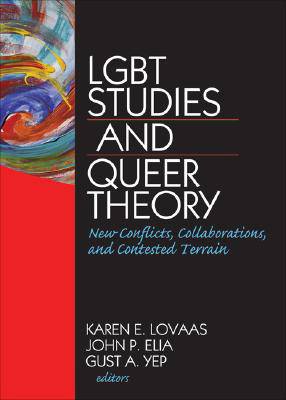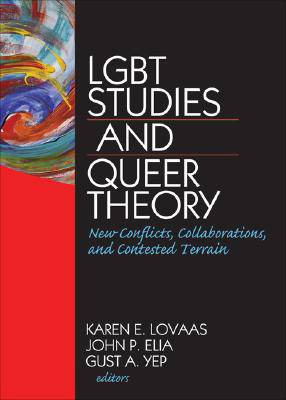
- Retrait gratuit dans votre magasin Club
- 7.000.000 titres dans notre catalogue
- Payer en toute sécurité
- Toujours un magasin près de chez vous
- Retrait gratuit dans votre magasin Club
- 7.000.000 titres dans notre catalogue
- Payer en toute sécurité
- Toujours un magasin près de chez vous
94,95 €
+ 189 points
Description
Find out how the tension between LGBT studies and queer theory exists in the classroom, politics, communities, and relationships
LGBT Studies and Queer Theory: New Conflicts, Collaborations, and Contested Terrain examines the similarities and differences between LGBT studies and queer theory and the uneasy relationship between the two in the academic world. This unique book meets the challenge that queer theory presents to the study and politics of gay and lesbian studies with a collection of essays from leading academics who represent a variety of disciplines. These original pieces place queer theory in social and historical contexts, exploring the implications for social psychology, religious studies, communications, sociology, philosophy, film studies, and women's studies. The book's contributors address queer theory's connections to a wide range of issues, including the development of capitalism, the evolution of the gay and lesbian movement, and the study of bisexuality and gender. Many scholars working in gay and lesbian studies still question the intellectual and political value of queer theory. As a result, queer theory has often been concentrated in the humanities, while gay and lesbian studies are concentrated in the social sciences and history. But this has begun to change in the past 10-15 years, as documented by the 12 essays presented in LGBT Studies and Queer Theory: New Conflicts, Collaborations, and Contested Terrain. LGBT Studies and Queer Theory: New Conflicts, Collaborations, and Contested Terrain includes:- historical notes on LGBT studies and queer theory
- some continuing tensions between LGBT studies and queer theory
- doubts about whether queer theory can lead to social change
- an analysis of the current state of proto-fields of LGBT studies and queer studies in religion
- concerns that queer theory's "erasure of identity" feeds into late capitalism
- an analysis of variability in social psychologists' studies of anti-homosexual prejudice
- an exploration of the commodification of queer identities in independent cinema
- how and why the category of bisexuality has been marginalized
- a historical review and assessment of recent bisexual theory
- a case study of Provincetown, Massachusetts
- an investigation of the interarticulation of race/ethnicity and gender
- a case study of the struggle to introduce LGBT studies in the curriculum at West Chester University
- and much more
LGBT Studies and Queer Theory: New Conflicts, Collaborations, and Contested Terrain is an essential read for researchers, academics, and practitioners involved in exploring multifaceted aspects of LGBT Studies and Queer Theory and their points of convergence and divergence.
Spécifications
Parties prenantes
- Auteur(s) :
- Editeur:
Contenu
- Nombre de pages :
- 356
- Langue:
- Anglais
- Collection :
- Tome:
- n° 59
Caractéristiques
- EAN:
- 9781560233176
- Date de parution :
- 07-02-07
- Format:
- Livre broché
- Format numérique:
- Trade paperback (VS)
- Dimensions :
- 152 mm x 211 mm
- Poids :
- 562 g







